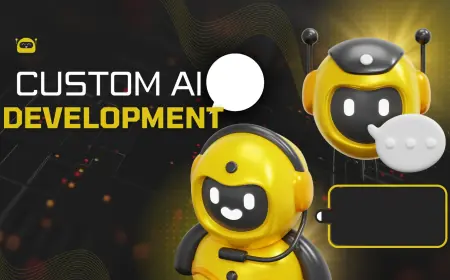Learning French from Scratch: A Simple Start for Beginners at Home
Start your French journey with easy lessons designed for complete beginners. Learn step-by-step from home with simple tips, vocabulary, and everyday phrases.

There’s something timeless about the idea of learning a new language. It’s a quiet kind of ambition — wanting to speak in words that are not yet your own, to understand another culture not through translation, but through its own sounds and expressions. French,
with its soft tone and rhythmic phrases, often captures that curiosity. But getting started can feel uncertain, especially when you’re doing it on your own.
For many, the first step today begins not in a classroom but online. That’s where French classes online for beginners come in — not rushed, not overloaded, but structured in a way that makes space for people who are starting from scratch. You don’t need a background in language learning. You don’t even need to know how to pronounce bonjour correctly. You just need the willingness to begin.
What You’ll Learn as a Beginner
Every new learner begins with the basics — and those basics matter. You’ll learn how to greet someone, how to introduce yourself, and how to understand simple questions and answers. But more than
memorizing words, the early lessons help you build comfort with the language: how it sounds, how it flows, how to slowly shape your own sentences.
Here’s what the first stretch of learning often looks like:
- Listening and Speaking
Even if you’re nervous about speaking aloud, listening and repeating simple phrases will gradually build your confidence. You’ll learn what
spoken French really sounds like — not the way it looks written, but how it’s used in conversation.
- Useful Vocabulary
Beginners start with practical words — greetings, numbers, days of the week, food, family, and emotions. These aren’t just for quizzes — they’re the pieces you’ll actually use in real conversations.
- Basic Grammar Concepts
You’ll be introduced to how French handles verbs, gendered nouns, and sentence structure. This can sound intimidating, but when taught clearly and patiently, it starts to make sense — often more quickly than expected.
- Everyday Situations
Ordering at a café, asking for directions, or introducing yourself — these everyday situations are used as practice to help you apply what you’ve learned in real-world contexts.
Learning at Your Own Pace
One of the main advantages of learning online is flexibility. You’re not being timed. There’s no rush to match someone else’s pace. You can review a lesson three times if needed or move ahead when you feel ready. That flexibility becomes especially important for working professionals, students, or anyone with a packed schedule.
Still, progress requires consistency. A little effort every day goes further than a lot of effort once in a while. Creating a small routine — 10 to 20 minutes a day — can be enough to keep moving forward
without feeling overwhelmed.
Why a Supportive Environment Matters
Some people think language learning is about memorizing rules or acing tests. But in reality, it’s much more personal. It’s about trying, making mistakes, and learning through doing. That’s why the right learning environment matters.
This is where FrenchTree makes a difference. Their courses are designed for real beginners — not just in content, but in tone and structure. Lessons are paced in a way that respects your time and attention, with space to ask questions, practice, and review.
FrenchTree also provides live teacher interaction, which is especially helpful when you’re just starting out. A patient teacher who explains things clearly and supports your learning journey can make the
difference between feeling stuck and feeling encouraged.
Keeping Yourself Motivated
Even if the platform and the teacher are great, motivation still comes from within. Here are a few gentle reminders that help many beginners stay on track:
- Start small. You don’t need to aim for fluency. Aim to finish one lesson. That’s enough for today.
- Say things out loud. Reading is helpful, but speaking — even just to yourself — makes it real.
- Use French in little ways. Change your phone’s language setting for a day. Watch a children’s show in French. Look at a recipe and try to follow it.
- Track your growth. Keep a notebook. Jot down phrases you
liked or words you struggled with. It’s not about being perfect — it’s about seeing how far you’ve come.
Conclusion
Starting anything new can feel slow at first. But that doesn’t mean you’re not making progress. Language learning, especially something as layered and expressive as French, takes time — and that time is part of the experience. Some days you’ll feel confident; other days it’ll feel like starting over. Both are normal.
What matters is that you keep going.
If you’re looking for a place to begin that meets you where you are — patiently, clearly, and without pressure — FrenchTree offers a space to do exactly that. Whether your goal is travel, education, or simply the joy of learning, your path in French can begin right here, one word at a time
What's Your Reaction?
 Like
0
Like
0
 Dislike
0
Dislike
0
 Love
0
Love
0
 Funny
0
Funny
0
 Angry
0
Angry
0
 Sad
0
Sad
0
 Wow
0
Wow
0


















































